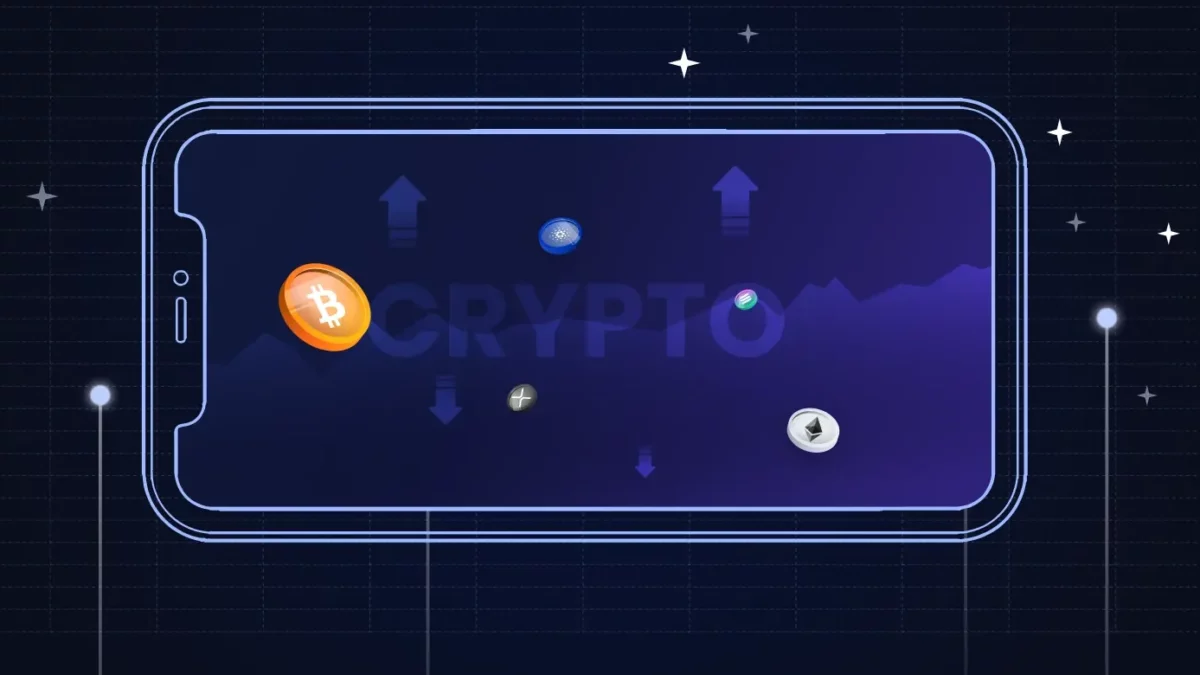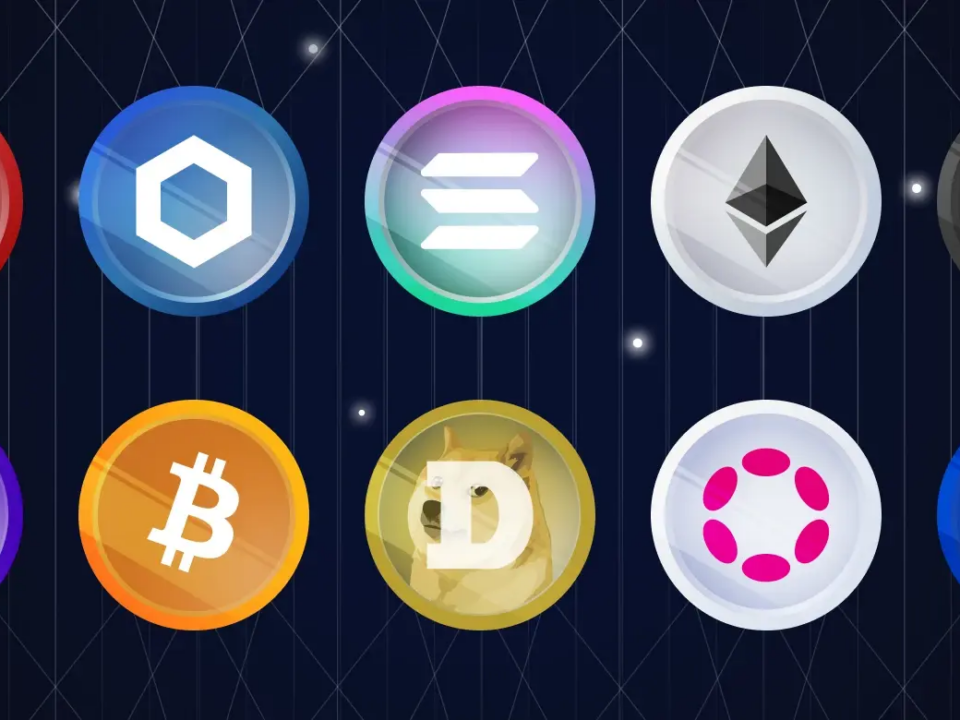Table of Contents
ToggleThe rapid expansion of the crypto market has resulted in a wide variety of digital assets with diverse functionalities, characteristics, and applications. While Bitcoin pioneered the crypto landscape in 2009 as the first digital currency, thousands of new coins and tokens have emerged since then, each with a distinct role within the crypto ecosystem. Navigating these different types of cryptos can be challenging, but understanding their crypto categories, uses, and unique benefits can make it easier for both new and seasoned investors to make informed decisions. In this article, we’ll explore the main types of digital assets, explain key crypto differences, and compare each crypto asset class to clarify their individual roles within the digital assets space.
Why Knowing the Types of Cryptos is Essential for Investors
For anyone interested in crypto investments, it is crucial to recognize the different types of cryptos and their unique purposes. Cryptos are more than just a means of payment or a store of value; they also represent access to decentralized financial services, facilitate voting in decentralized networks, and allow for secure asset transfers. The major types of crypto—from blockchain-based coins to various forms of tokens—provide both functional and speculative value, enabling investors to align their crypto choices with their own investment goals.
In this article, we’ll walk through the types of cryptos commonly encountered in the market, breaking down their defining features, comparing them to each other, and discussing their potential benefits and drawbacks for investors.
Types of Cryptos: An Overview of Main Crypto Types
The crypto world is often divided into coins and tokens. Coins are digital currencies built on independent blockchains, while tokens are usually created on top of an existing blockchain. Coins and tokens also differ in terms of functionality, where coins are typically used as a means of payment, and tokens serve a broader range of functions within blockchain technology. Let’s take a look at the crypto types overview and identify their distinctions.
1. Blockchain Coins vs Tokens
A foundational concept in the crypto market is the difference between blockchain coins and tokens. While both can be traded, they are distinct in purpose and function:
- Coins: Coins operate on their native blockchain. For example, Bitcoin (BTC) and Ethereum (ETH) each run on their own blockchain networks and were created to be digital money. Coins generally act as a medium of exchange, a store of value, or a unit of account. They are often referred to as “cryptos” in a narrow sense, as they serve similar functions to traditional fiat currencies.
- Tokens: Tokens are built on existing blockchain networks such as Ethereum, Binance Smart Chain, or Solana, and can represent various assets or utilities. Tokens can serve specialized roles, like enabling decentralized applications (dApps), participating in governance systems, or representing digital ownership. Tokens are usually further divided into categories, such as utility tokens and security tokens, based on their functionalities.
2. Crypto Coins vs Altcoins: Key Differences
Altcoins encompass all cryptos that are alternatives to Bitcoin. While Bitcoin remains the most widely known and valuable digital currency, altcoins were developed to improve upon Bitcoin’s limitations or to introduce new features:
- Bitcoin (BTC): Known as digital gold, Bitcoin is designed as a peer-to-peer digital currency. With a capped supply of 21 million BTC, it is often used as a store of value and a hedge against inflation, much like gold.
- Altcoins: Altcoins include all other cryptos besides Bitcoin. Some of the most popular altcoins are Ethereum, Cardano, and Solana. Altcoins may provide faster transaction speeds, lower fees, improved privacy features, or additional functionalities like smart contracts. Within altcoins, there are many sub-categories such as stablecoins, governance tokens, privacy coins, and asset-backed tokens. Each type offers unique benefits to users, such as programmability, privacy, or asset collateralization.
Read: Top altcoins 2024
3. Stablecoins vs Utility Tokens
Among different types of cryptos, stablecoins and utility tokens are commonly encountered and serve specific functions:
- Stablecoins: Stablecoins are cryptos pegged to stable assets, such as the US dollar, to reduce volatility and provide stability. By maintaining a 1:1 peg with a fiat currency, stablecoins allow users to transact in crypto without exposure to extreme price fluctuations. Stablecoins, like USDT (Tether) and USDC (USD Coin), are used frequently in decentralized finance (DeFi) applications for lending, borrowing, and payments.
- Utility Tokens: Utility tokens offer access to certain services or features within a blockchain network. They are typically associated with dApps and other blockchain-based platforms, where they allow users to access features, pay for services, or participate in network governance. For instance, Chainlink (LINK) tokens are used to pay for decentralized oracle services, while Filecoin (FIL) tokens enable users to buy decentralized storage.
Types of Tokens in Crypto: Security Tokens vs Utility Tokens
When it comes to types of tokens in crypto, security and utility tokens are two essential categories. Their distinction is crucial for understanding crypto investment types and regulatory requirements.
- Utility Tokens: Utility tokens represent access to blockchain network services, serving as payment within specific platforms or allowing users to participate in network governance. They are not considered investment vehicles and typically avoid regulatory classification as securities.
- Security Tokens: Security tokens represent ownership of an asset or a share in a venture. Because they derive value from an external, tradable asset, security tokens are often subject to regulatory scrutiny and are considered investment vehicles. Investors can buy security tokens to gain a stake in a project, real estate, or any other asset-backed venture.
The primary difference between these tokens is that security tokens are regulated and often require compliance with securities laws, while utility tokens function as access tokens within a blockchain ecosystem and generally fall outside regulatory frameworks.
A Deep Dive into the Major Types of Crypto
Now that we’ve discussed the foundational types of crypto, let’s explore these types in greater depth, covering their unique properties and use cases.
1. Bitcoin and Altcoins: Foundation of the Crypto Ecosystem
Bitcoin and altcoins represent two distinct categories within the crypto market. While Bitcoin remains the most popular digital asset, altcoins have grown to encompass a vast array of cryptos, each designed to offer new functionalities or solutions.
- Bitcoin (BTC): Bitcoin was developed as a decentralized, digital form of money that allows peer-to-peer transfers without the need for a central authority. With its limited supply and secure blockchain, Bitcoin is often referred to as digital gold and is a popular store of value.
- Altcoins: Altcoins are all cryptos other than Bitcoin. These range from platform tokens like Ethereum (ETH), which facilitates smart contracts and dApps, to privacy coins like Monero (XMR), which provide enhanced transaction privacy. Altcoins offer a vast array of features and serve different purposes, from decentralized finance to facilitating cross-border transactions.
2. Utility and Security Tokens: Understanding Their Roles
Utility tokens and security tokens offer specialized functions within blockchain networks:
- Utility Tokens: Utility tokens allow users to access services within a particular blockchain network. They play an essential role in decentralized applications and enable activities like staking, voting, and purchasing services within a blockchain platform. For instance, Uniswap’s UNI token allows holders to participate in the governance of the Uniswap decentralized exchange.
- Security Tokens: Security tokens represent a more traditional approach to investing within the crypto world. They signify ownership in a real-world asset, like stocks, bonds, or real estate, but are stored on a blockchain. Because of this asset backing, security tokens are classified as securities and are regulated by financial authorities. They offer benefits like liquidity and transparency, while also allowing for fractional ownership of high-value assets.
3. Stablecoins: Bridging Traditional Finance and Crypto
Stablecoins are an essential component of the crypto market as they combine the advantages of digital assets with the stability of fiat currency.
- Purpose: Stablecoins aim to provide a reliable, stable asset within the volatile crypto market. By pegging their value to fiat currency, they enable secure transactions, hedging, and trading with minimized exposure to volatility.
- Popular Stablecoins: USDT, USDC, and BUSD are the most widely used stablecoins. They’re essential for decentralized finance applications and frequently used to hedge against crypto volatility.
Stablecoins enable investors to store value on the blockchain without experiencing the extreme price swings of other cryptos.
4. DeFi Tokens and NFTs: Redefining Financial Transactions and Ownership
DeFi tokens and NFTs represent innovative applications within the crypto space, each with unique properties and implications:
- DeFi Tokens: DeFi tokens power decentralized financial services such as lending, borrowing, trading, and yield farming. They enable users to access financial services without intermediaries. Examples include Aave (AAVE) for decentralized lending and Compound (COMP) for yield farming.
- NFTs (Non-Fungible Tokens): NFTs represent ownership of unique digital items, such as art, music, or in-game assets. Unlike fungible tokens (such as Bitcoin), NFTs are indivisible and unique, creating verifiable ownership of digital assets. NFTs have revolutionized industries like art and gaming, enabling digital artists to monetize their work securely.
Comparative Analysis: Different Types of Crypto and Their Benefits
| Crypto Type | Advantages | Disadvantages |
|---|---|---|
| Blockchain Coins | Decentralized, transparent, peer-to-peer transfers, trusted medium of exchange. | High volatility, scalability issues. |
| Altcoins | Innovative functionalities (smart contracts, privacy, faster transactions). | Regulatory risks, varying stability. |
| Stablecoins | Stability, low volatility, pegged to fiat assets, ideal for trading in volatile markets. | Centralized, regulatory scrutiny, dependence on reserve assets. |
| Utility Tokens | Access to network features, flexible usage within ecosystems. | Limited value outside specific platforms, speculative. |
| Security Tokens | Asset-backed, regulatory compliance, investment potential, transparency. | Regulatory complexity, limited use outside investments. |
| DeFi Tokens | Decentralized access to financial services, higher yields than traditional finance. | Risk of smart contract vulnerabilities, regulatory uncertainty. |
| NFTs | Proof of ownership, digital asset monetization, revolutionizing digital art and gaming. | Speculative market, high volatility, difficult valuation. |
Conclusion
Each crypto asset class offers distinct benefits, and understanding these differences can guide investors in making informed decisions. Whether investing in Bitcoin as a store of value, participating in DeFi through specialized tokens, or acquiring NFTs for ownership of digital art, the variety of digital assets available today provides ample opportunities.
As the crypto market matures, regulatory clarity and technological innovation will continue to shape the future of crypto categories. From blockchain coins vs tokens to DeFi tokens vs NFTs, the crypto world provides a broad range of opportunities for different types of investors, each asset class offering a unique mix of functionality, risk, and reward.
Related posts
PAWS Telegram Game: The New Tap to Earn Game That Is Beating Hamster Kombat
Discover how to play and earn with PAWS Telegram game.
Read more
Top 10 Largest Cryptos To Invest In November 2024 [By Market Cap]
Explore top crypto picks for profitable investments in 2024.
Read more


